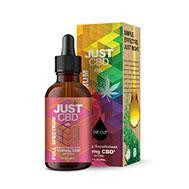Herbal Tinctures for Natural Treatments
Herbal tinctures are a natural hydroalcoholic extract obtained by macerating a single herb or a mixture of herbs in alcohol 40o, depending on the type of disease we represent. The active principles in tinctures are more potent and maintain their therapeutic properties for a longer period of time.
Herbal tincture preparation instructions-
A bottle or other container that can be filled to the neck with herbs without thickening, then poured over a fruit brandy or rye. Glass is permitted to stand, tightly closed, in a warm position (about 20 degrees Celsius) for 14 days or more, during which time it is constantly shaken, then strained and squeezed. Internal use is made in the form of tea infusions mixed with drops.
Natural remedies of herbal tinctures-
Tinctures are herb extracts made by mixing them with spirits containing at least 60% alcohol, such as food refined alcohol (diluted with water), fruit brandy, or vodka. The use of alcohol and rubbing alcohol in the dyeing process is strictly prohibited. Herb maceration can be achieved quickly and conveniently in the home, in a brandy or brandy house.
HOW TO MAKE AN ALCOHOL TINCTURE
- The fresh or dry plant is soaked in pure alcohol or a combination of alcohol and water to make a tincture. Alcohol is extracting: it is sucking up all of the water in it. The tincture that results is a blend of water and alcohol. When working with fresh plants, the liquid tincture is usually the same as the amount of liquid applied at the start.
- The final volume of dry plants, especially roots, is often much smaller than the initial volume. Tinctures should be stored in dim, cool places. The shelf life of alcoholic tinctures is typically several years.
- Many botanists prefer tinctures to capsules and infusions because of their long shelf life and ease of preparation. Mixtures can be made by combining tinctures from different plants (although some resinous substances, such as myrrh and propolis, do not combine well).
For More info:-

Comments
Post a Comment